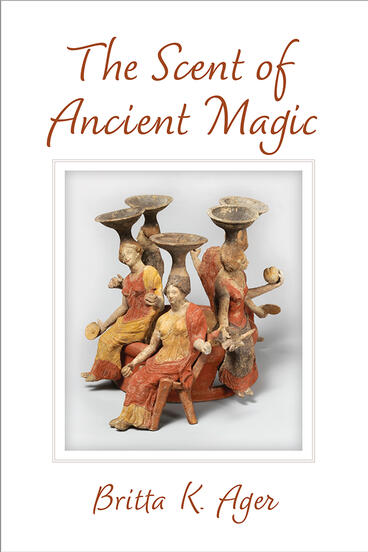The Scent of Ancient Magic
Examines the complex association of the sense of smell and the supernatural in classical antiquity
Description
Magic was a fundamental part of the Greco-Roman world. Curses, erotic spells, healing charms, divination, and other supernatural methods of trying to change the universe were everyday methods of coping with the difficulties of life in antiquity. While ancient magic is most often studied through texts like surviving Greco-Egyptian spellbooks and artifacts like lead curse tablets, for a Greek or Roman magician a ritual was a rich sensual experience full of unusual tastes, smells, textures, and sounds, bright colors, and sensations like fasting and sleeplessness. Greco-Roman magical rituals were particularly dominated by the sense of smell, both fragrant smells and foul odors. Ritual practitioners surrounded themselves with clouds of fragrant incense and perfume to create a sweet and inviting atmosphere for contact with the divine and to alter their own perceptions; they also used odors as an instrumental weapon to attack enemies and command the gods. Elsewhere, odiferous herbs were used equally as medical cures and magical ingredients. In literature, scent and magic became intertwined as metaphors, with fragrant spells representing the dangers of sensual perfumes and conversely, smells acting as a visceral way of envisioning the mysterious action of magic.
The Scent of Ancient Magic explores the complex interconnection of scent and magic in the Greco-Roman world between 800 BCE and CE 600, drawing on ancient literature and the modern study of the senses to examine the sensory depth and richness of ancient magic. Author Britta K. Ager looks at how ancient magicians used scents as part of their spells, to put themselves in the right mindset for an encounter with a god or to attack their enemies through scent. Ager also examines the magicians who appear in ancient fiction, like Medea and Circe, and the more metaphorical ways in which their spells are confused with perfumes and herbs. This book brings together recent scholarship on ancient magic from classical studies and on scent from the interdisciplinary field of sensory studies in order to examine how practicing ancient magicians used scents for ritual purposes, how scent and magic were conceptually related in ancient literature and culture, and how the assumption that strong scents convey powerful effects of various sorts was also found in related areas like ancient medical practices and normative religious ritual.
Britta K. Ager is Assistant Professor of Classics at Arizona State University.
Reviews
"The author draws from ancient literature, ancient medicine, and sensory studies so as to highlight the possibilities that such sensory studies offer to the reconstruction of ancient magic and ritual, in ways that broaden and enrich our understanding of the subject. . . . The book is a fascinating read and an important contribution, not just to the study of Greco-Roman magic but also to the reconstruction of Greco-Roman cultures, and it fills in a gap in the research on the subject."
- Christina Aamodt
—Bryn Mawr Classical Review
"This book takes us through clouds of incense and enveloping perfumes into the aromatic history of scent. . . She combed through a lot of literature to offer a scholarly, anthropological but easy read that is well footnoted and referenced."
- American Herb Association Quarterly, Kathi Keville

